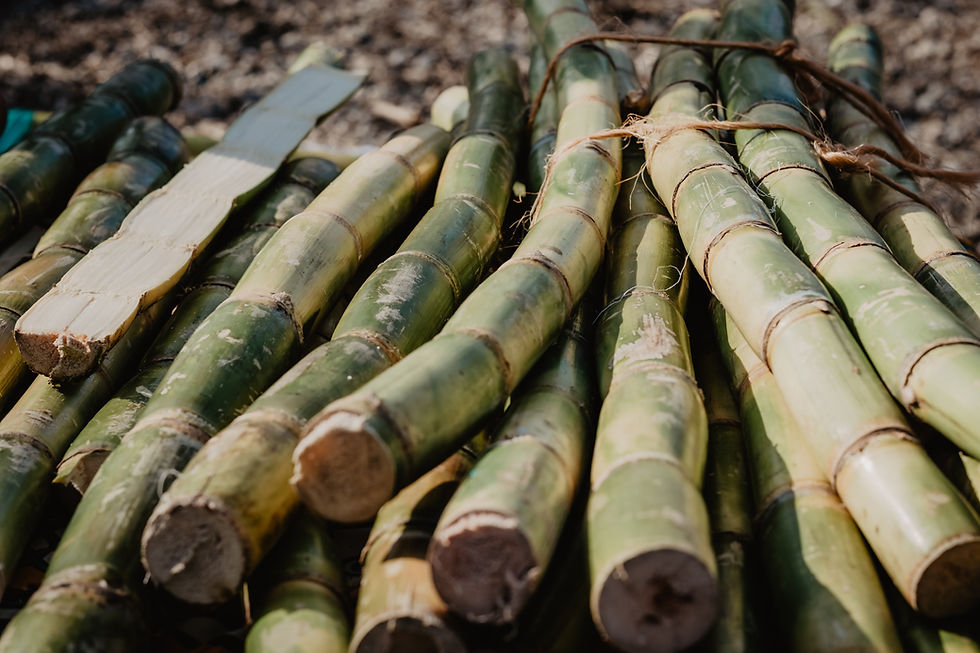Afro-Brazilian Women Past & Present - Determined Defenders
- gawat2
- Feb 24, 2022
- 2 min read
Updated: Apr 10, 2022
The history of Afro-Brazilian people is rich and inspiring, but it can sometimes be elusive. When the government of your country declares that its people live under a racial democracy, and agree that there is no racism after implementing a failed "whitening" program, you can probably guess that information on the past and present contributions of people of the African diaspora are not widely published. Uncovering the truth can be a challenge. Finding out about the impact of women can almost feel like finding clues in a mystery game.

There is a saying that women hold up half the sky, but historically, the works of women have been suppressed, glossed over, stolen, and even outright dismissed. Intersectionality adds yet another layer to the complexity that is positive notoriety for Black women.
From the time the first Africans set foot on Brazilian soil in the 1500's, women were there, tending the fields, working in the sugar mills, receiving their share of torture, having babies, losing babies, and finding room for connections to things that were spiritual.
As Brazil became the world's largest producer of sugar in the 1600s, Black and brown bodies continued to serve as grist for the mill of industry. Black women were there.

And Black women resisted, leading fighters, armies, and communities in the taking up of arms. Resisting the wresting of their physical beings from their homeland in the case of Princess Aqualtune Ezgondidu Mahamud da Silva Santos. Resisting the shackles of slavery in the strength of Dandara who chose death over returning to life in chains. Fighting to keep others from the fate of being yoked by a master for decades like Teresa de Benguela. Inspiring faithful followers despite the attempts to silence and obscure their face as we see with Escrava Anastácia.

Afro-Brazilian women made use of any avenue they could find to elevate themselves and their children by any means, resulting in power dynamics being used to benefit their families in the case of having children with their oppressors; in the instances where a choice was even available. Chica de Silva chose this path and while her story is romanticized to be a tale of triumph, when viewed through today's lens we see that giving up your Blackness to progress is a price that comes with pain.
Whether the fight was undertaken for physical freedom like Maria Felipa de Oliveira, or for freedom of the soul a la Iyá Nassô, Black women suited up with whatever they had, raised their voices, fists, and hearts, inspiring those around them in the process to follow them into battle for change.
Ask Luísa Mahín about determination. Look to Laudelina de Campos Melo to learn to stand up for yourself and others. Talk to Taís Araújo about blazing a new trail. Cherish the example of Marielle Franco when deciding if standing up to the embedded, corrupt power structures means more than being comfortable.

Black women have been the example of every kind of strength imaginable. While we don't know all of their stories, we can learn them, keep them in our hearts, share them with our family and friends, and live up to the potential they insisted we live to experience.
Obrigado irmãs.



It was pretty interesting to read about all the women that are unsung heroes. Whether they chose death over slavery, or chose life over death, it is amazing that these women were able to make sure hard decisions and that they survived through all the mistreatment. People need to know more about these courageous women who were courageous in the fight for freedom and equality.
I loved your timeline and that you highlighted different types of Black women's excellence. I loved that you mentioned women that chose death over imprisonment. Some people might look at that as a weak move, but it takes a lot of courage to end your life.
Love your timeline. The display of Afro-Brazilian women's excellence is both inspirational and interesting. Women are often the unsung heroes in history whenever I get the chance I want to discover more.